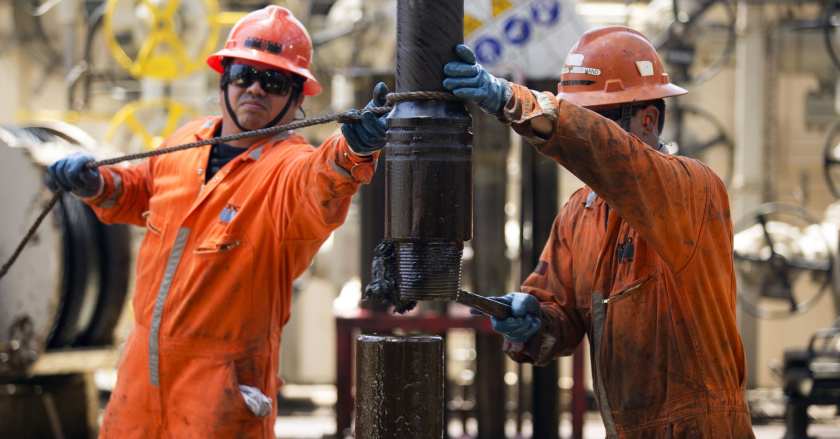Yesterday oil futures closed negative for the first time in history. You probably are still trying to wrap your head around what this means. So I thought I would help you.
Here is a thought experiment.
Suppose you have an economy that is divided this way:
- One of every 200 people is sufficient to feed the entire country.
- Four of every one hundred people is sufficient to produce everything else needed by the country.
- Together, about four point five (4.5) people out of one hundred are needed to produce everything needed by the country to live on.
- The other 95.5 people are essentially superfluous to necessary labor.
Over time this 95.5 out of 100 people come to be engaged in all manner of pursuits that are economically superfluous, but absorb the output of the 4.5 of productively employed persons.
In other words, they create demand for the output of the productively employed persons.
This works fine, mostly. Growth is tepid, because real growth is only occurring in the sector of the economy that is productively employed. Growth occurs among the 4.5%. But it is measured in terms of the 100%. Say growth in the 4.5% is 40% — roughly an increase from 4.5 out of 100 people to 6.5 out of 100.
But no new investment is possible here in the productive sector owing to absolute over-accumulation of productive capital. So, there must be an increase in the superfluous sector. It must increase from roughly 95.5 out of 100 people to roughly 97.5 out of 100 people.
Although there has been a huge increase in the productive sector, this is expressed as a very small increase in the overall economy — secular stagnation.
You get the idea: additional investment in the productive sector is not possible, so there must be an increase in superfluous labor time. If there is no increase, there will be a crisis. New demand for this increased output must come into being. That is the state’s role — to foster new demand.
So, now we see how this works and how the two sectors relate to one another.
(Pardon me if this is a bit unclear. I’m working this out as I go along.)
Enter this virus; it emerges and sweeps the world market. The state shuts down “non-essential” businesses, which just happen to mostly reside in the superfluous labor sector. They reside, in other words, in the 95.5% of the economy that mostly create demand for the output of the 4.5% of productively employed capital. Let’s say the hit on the superfluous sector amounts to 20 people. So now, instead of being 95.5 units of demand, the superfluous sector has suddenly shrunk to 75.5 units of demand.
This is what the economists see.
But labor theory see something more.
Now 20 units of the sector that once were realized of the surplus value produced by productively employed capitals suddenly has gone away. A massive devaluation has taken place almost instantaneously. This is expressed in a mass of idle capital and an equally large population of excess workers. And it takes the form of both currencies and commodities as well.
Currencies have no value and when they fall out of circulation, they simply become worthless scrip. Commodities, when they fall out of circulation, have no prices and, we must assume, no values as well. They are not even social use values, i.e., use values for someone other than their producers. (But this term may be nuanced: what do I mean by the term, “their producers”?)
The damage to the forces of production does not end here.
The productively employed capital is not shut down; it continues to function as capital, to self-expand and to produce surplus value. The state, which does not hesitate to shut down restaurants, never steps in to shut down oil drills, farms and meat processing plants. These operations are self-evidently “essential” to any modern society, right?
Who in their right mind would tell an oil refinery to stop refining oil into gasoline, since commuters need the gasoline to get to work? Only, the roads are empty now. There are no commuters. And with the empty roads the air is clearing as pollution settles. Less gasoline is used to get superfluous workers to their superfluous jobs that no longer exist.
Soon, the pumps are silent. The gasoline trucks move less often. The refineries begins to shut down. The storage facilities begin the fill up. And still oil is being pumped. Because pumping oil is the production of surplus value and entire nations are dependent on the production of surplus value.
Finally, when oil futures go negative, speculators get the memo:
Capitalism is dead.

Reblogged this on Zer0 H0urs.
LikeLike
Is oil the only commodity producing surplus value?
LikeLike
Only labor power produces surplus value. But oil is not the only commodity currently in glut.
LikeLike